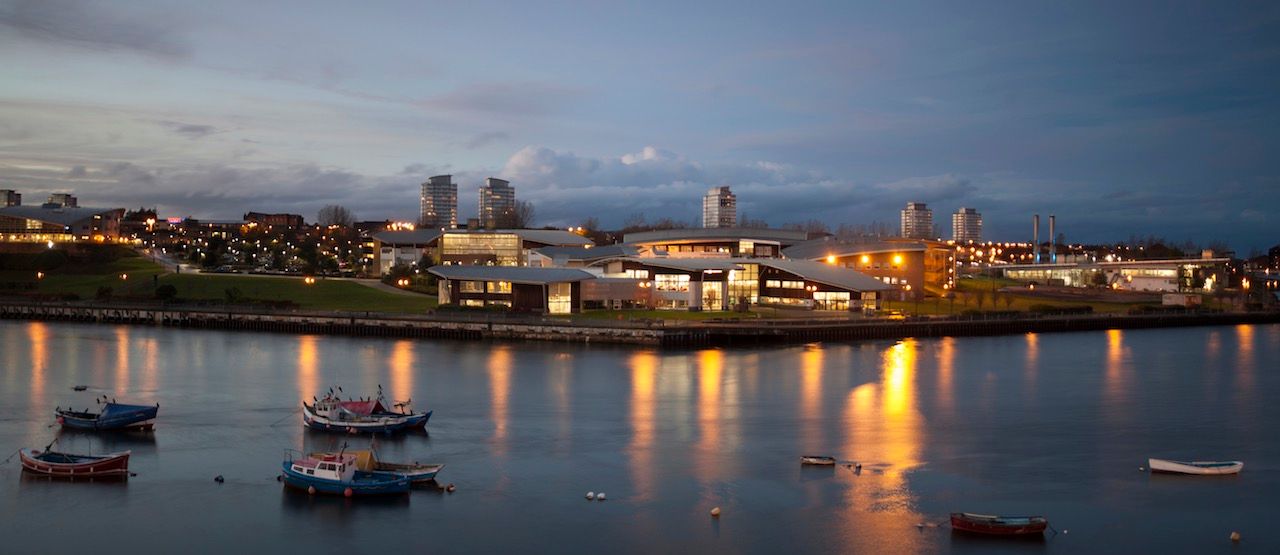Energy, water and carbon reduction
As part of the Environmental and Sustainable Development strategy, we are committed to the responsible use of energy throughout our entire business.
Close
As part of the Environmental and Sustainable Development strategy, we are committed to the responsible use of energy throughout our entire business.
The University of Sunderland produces around 10,000 tonnes of carbon dioxide per annum and has annual costs of over £2.3 million for electricity, gas and water. It is the responsibility of all users of the buildings and estate to ensure that the University's resources are used efficiently. The University intends to:

During 2022-23 the University installed 435 kWp of solar PV across the Campus, which will generate over 380,000 kWh of electricity each year, equivalent to the annual electricity use of 130 UK homes, saving around 77 tonnes of CO2 each year. We have also ensured almost all of our fleet vehicles are now electric.
Work has also continued to improve the energy efficiency of our buildings, including LED lighting upgrades and improvements to the Building Management Systems. We have also rolled out water metering and targeting meters, to help to reduce water consumption.
Find out more information by reading the Annual Carbon Management Report 2022/23.

A major project to replace the old, inefficient boiler plant at the National Glass Centre was completed during 2020. The single boiler was replaced with multiple condensing boilers for improved efficiency and reduced gas use. As part of the same project, the centralised domestic hot water plant was replaced with a decentralised point of use system to better match variable demand and reduce standing losses.
.jpg)
A completely new Building Management System was installed in Wearside View to allow heating, ventilation and cooling to be controlled centrally and reduce energy waste.
Refurbishment and reconfiguration works at level one of the David Goldman Technology Centre incorporated high efficiency LED lighting and improved controls to reduce energy use.

A project to modernise and improve the performance of the Building Management System in the majority of buildings across the estate is almost complete and BMS specialists have been engaged to repair, replace and improve the controls systems where required in order to improve efficiency and reduce energy waste.
Moving forward, we have put a number of plans in action to help reduce our carbon emissions further.
A new Carbon Management Plan is being developed for 2021/22 onwards, with strategic oversight by the recently formed Strategic Environmental Sustainability Group, which includes representation from across the University, including students and academic colleagues.
A heat decarbonisation plan for the estate will be developed, which will contribute to the new Carbon Management Plan and act as a roadmap for the phase-out of gas boilers and long-term replacement with decarbonised heat sources, such as heat pumps and heat networks.
A successful bid for a Public Sector Decarbonisation Grant will help to replace the old gas boiler plant at St Mary's building with a low carbon air source heat pump system. This project will incorporate essential enabling works, such as increasing the electrical supply to the building and replacing radiators which are compatible with the lower operating temperatures of the heat pump.
The energy/carbon monitoring and targeting software was replaced with a brand new system to allow for more comprehensive carbon data collection, clearer reporting, automation and data visualisation to help monitor and communicate performance against the forthcoming new Carbon Management Plan.
Further phases of LED retrofits and improved controls are planned for David Goldman and Reg Vardy Centre. These are expected to reduce energy use, costs and carbon emissions by around 50% compared to the old, inefficient fluorescent lighting and obsolete controls.
Options to improve inefficient lighting and increasingly obsolete electronic controls in multiple buildings at Sir Tom Cowie at St Peter's are being investigated for a phased implementation in future years.
To see our current Carbon Management Plan, or to pass on ideas on how to reduce our carbon footprint contact:
hse@sunderland.ac.uk